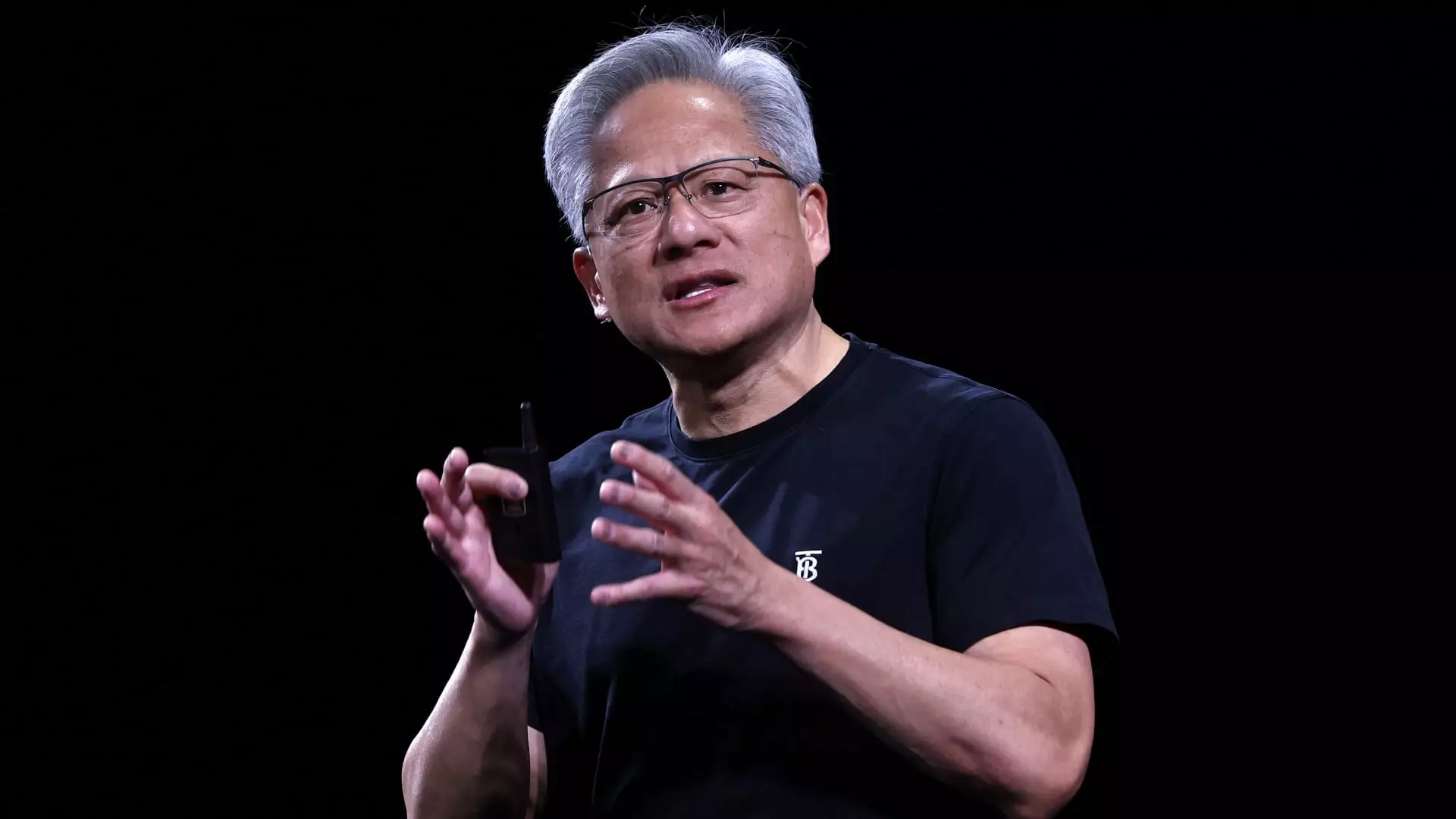Jensen Huang, the enigmatic figure at the helm of Nvidia, has become the unsuspecting rock star of the tech industry. His recent foray into Europe, a meticulous series of engagements from London to Paris, was not merely a quest for business expansion but a clarion call for a continental revolution in artificial intelligence. Huang’s fervor breathed life into conferences packed with attendees—from tech enthusiasts to high-ranking politicians—creating an almost electric atmosphere that echoed the excitement of a live concert. It was evident: Huang is not just discussing technology; he’s ushering in an era where that very technology could redefine the landscape of Europe.
During these events, Huang articulated a powerful vision, suggesting that Nvidia’s tools—especially their graphics processing units (GPUs)—are not merely items for sale. He is pushing a paradigm shift, clamoring for a perspective where AI is perceived as an essential infrastructure akin to electricity. What he’s proposing is nothing short of audacious: that Europe must seize control of its own technological destiny by constructing a robust AI ecosystem independent of external influences. This approach exemplifies a commendable blend of boldness and pragmatism that is needed now more than ever.
The Promise of Sovereign AI
Central to Huang’s narrative was the controversial yet vital topic of “sovereign AI.” The notion that countries should establish data centers on their own soil to serve their citizens is a revolutionary stance that counters the prevailing trend of globalized tech infrastructures, which often make nations dependent on foreign data solutions. By advocating for this concept, Huang is pressing upon European leaders an opportunity for sovereignty in a tech landscape dominated by global giants, particularly the United States and China.
In his speeches, Huang praised the European landscape for its immense potential, recognizing the talent that is born amid the continent’s rich history of innovation. He implored leaders like U.K. Prime Minister Keir Starmer and French President Emmanuel Macron to foster a collaborative ecosystem where countries unite in building capacity. The collaboration with French startup Mistral exemplifies this vision—a partnership set to develop an AI cloud powered by Nvidia’s advanced technology, promising a significant leap towards regional self-reliance.
A Dangerous Global Game of Chess
However, this ambition does not come without challenges, particularly in the face of rising tensions between the United States and China. Huang highlighted constraints that Nvidia faces, particularly regarding exports to China, which puts American companies at a disadvantage in a rapidly evolving market. With U.S. firms increasingly sidelined due to government restrictions, there arises a legitimate concern of accelerating tech advancements in China, with companies like Huawei leveraging their domestic markets to bridge the gap in AI capabilities.
Huang’s candid acknowledgment that Huawei may be “a generation behind” Nvidia is a subtle alarm—there is a risk that if the U.S. continues to isolate itself, it may inadvertently galvanize Chinese innovations that can rival American ingenuity. After all, if countries feel they must choose sides, they may look to build their AI infrastructure with whatever is available—Chinese tech could become appealing simply due to its accessibility and affordability.
The Decade of Robotics and Autonomous Vehicles
Nvidia’s future-focused rhetoric extends into multiple realms—most notably, robotics and autonomous vehicles. Huang’s assertion that we are entering “the decade of” technological advancements in these fields is compelling. With expectations that technology will evolve drastically, it begs the question: will Europe harness this momentum or watch as it drifts to other shores? The success in applying AI tools in these realms could propel companies from obscurity to global prominence, provided they play their cards right.
In the context of quantum computing, Huang’s mention of being on the verge of an “inflection point” speaks volumes about Nvidia’s forward-looking approach. The application of quantum computing for solving intricate challenges could redefine industries, particularly healthcare and material sciences, leading to breakthroughs that would have otherwise stayed locked within traditional computational constraints.
Nvidia’s proposition is a clarion call for Europe: to band together, embrace collaborative efforts, and take charge of the AI narrative. Jensen Huang’s vision transcends corporate ambition—it embodies a rallying point for a continent with the potential to stake its claim in the annals of technological evolution. The time has come for European nations to respond decisively. Embracing this opportunity could redefine not just an industry, but also the socio-political fabric of the entire region, reestablishing Europe as a formidable player in the global tech arena. The road ahead may be fraught with challenges, but the reward is a future in which Europe stands at the forefront of innovation, undeterred and unbound.


Leave a Reply